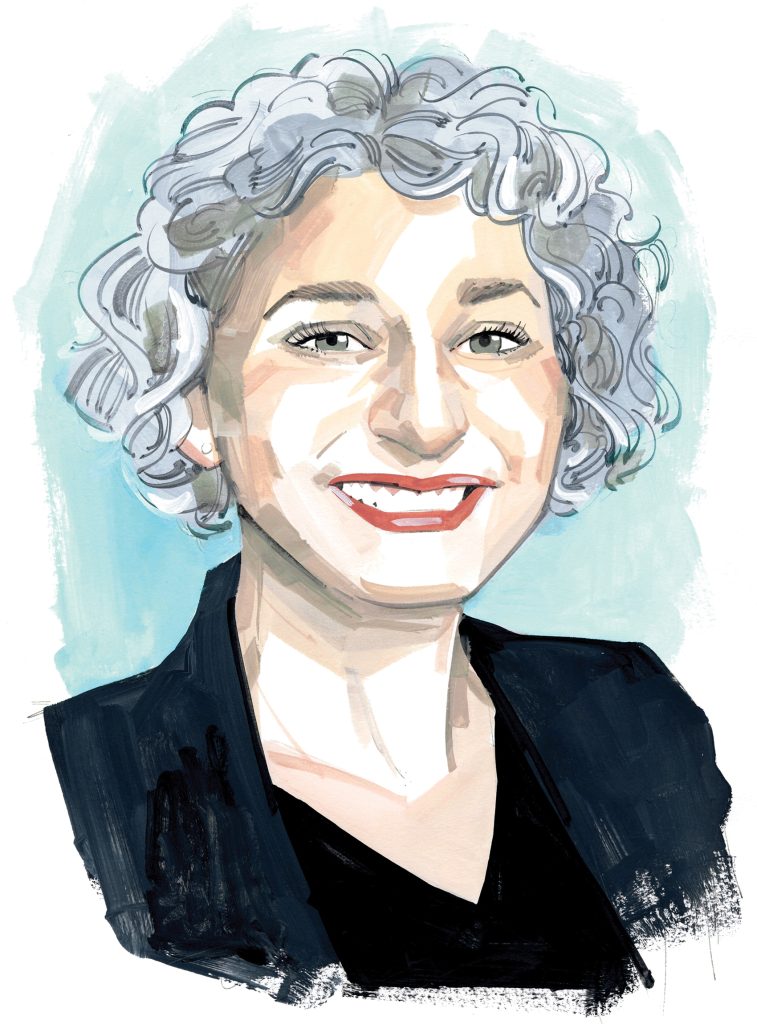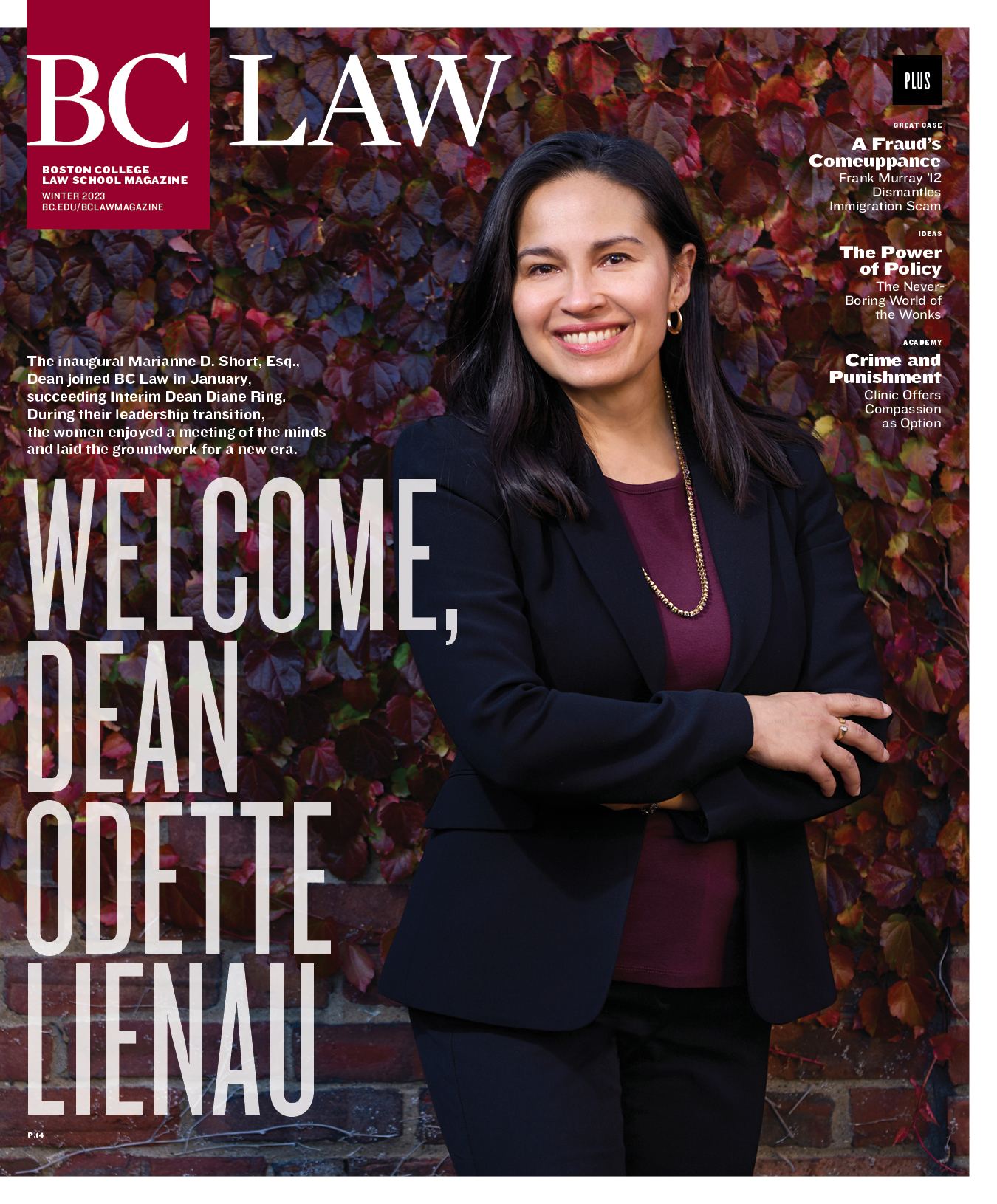Pocket Résumé
Degrees: BA, Wellesley, 1999; MA, Columbia, 2000; PhD Yale, 2007; JD, Columbia, 2010. Credentials: Clerk for federal district and appeals court judges, 2011–2013. Associate, Cohen Millstein Sellers & Toll, 2013-2016. Bigelow Fellow, University of Chicago Law School, 2016-2018. Faculty member, Boston College Law School, 2018-present. Selected Publications: University of Chicago Law Review, Michigan Law Review, Duke Law Journal, among others.
The Idea: Ever since 1890, the federal government has used antitrust law to rein in monopolies. Now a tiny but growing group of legal scholars and practitioners, including BC Law Professor Hiba Hafiz, want to see it used against labor monopsonies firms that abuse their market power in ways that harm workers by reducing wages, hiring, benefits, or workplace quality. Optimal use of this new tool—called labor antitrust—requires a whole-of-government approach, with agencies pooling information and expertise, and bringing joint enforcement actions.
The Impact: Last October, Hafiz was named an expert advisor to the Federal Trade Commission. In the unpaid role, she’s been advising on the intricacies of labor antitrust and the whole-of-government approach. That she would end up in such a position was hardly foreordained. A student at Yale in the early 2000s, she was training for a life as a professor of comparative literature, but early in her time there, she participated in a unionization campaign aimed at graduate teaching and research assistants. Ultimately, she made connections in the larger union movement, and by 2007, the year she received her doctorate, she was already on a new career path.
The idea of using law to defend workers’ interests “resonated with me,” Hafiz recalls, in part from having seen workers treated poorly during her childhood, in Saudi Arabia. There was also her sense that many US workers are “underpaid and working in horrible conditions. The Great Resignation is evidence of that,” she says.
In law school, Hafiz elected a course on antitrust law, out of a vague sense of antitrust as a curb on corporate power. By chance, the professor included a case in which nurses were suing several hospitals for wage-fixing and sharing pay information, to monitor any cheating within the hospitals’ cartel. The case was an early example of labor antitrust in action; in fact, the nurses’ law firm was the only one in the US focused on practicing in the area. “It was very niche and very risky,” she says. “There was limited precedent for how to bring and analyze these types of cases under existing legal doctrine.”
Hiba Hafiz started spreading the word of labor antitrust in law reviews and in media like The Atlantic and The New York Times, hoping they would catch the eye of government regulators, who, she felt, were often better positioned to bring the cases than private litigators.
Risky though it was, it felt like a vocation to Hafiz, who three years after law school, ended up at the nurses’ firm, working mainly on another labor antitrust case, Le v. Zuffa, in which mixed martial arts fighters sued Ultimate Fighting Championships (UFC) for acquiring and then shutting down rival sports leagues, one of several means that UFC uses to keep a lid on fighters’ pay, according to the plaintiffs. Years later, Le and the nurses’ case are still in litigation.
Around the time of her arrival at BC Law, Hafiz had started spreading the word of labor antitrust in law reviews. She hoped that the law review articles and her writing in media like the Atlantic and New York Times would catch the eye of government regulators, who, she felt, were often better positioned to bring the cases than private litigators.
Her writing did indeed draw the attention of regulators, hence the FTC appointment. The government’s interest in using antitrust law to assure competitive labor markets comes, Hafiz says, “because Joe Biden is a pro-worker president in a way we haven’t seen in a really long time.”
Regulators have already taken a page from Hafiz’s writings by employing a whole-of-government approach in labor antitrust enforcement, with new memoranda of understanding among the FTC and the National Labor Relations Board, the Department of Justice and the Labor Department, and the Department of Justice and the NLRB. The memoranda call for information-sharing, joint staff trainings, and joint outreach and education efforts, though not interagency enforcement actions. Hafiz calls them “a great first step.”
Fighting employer monopsony requires whole-of-government action, she says, because of divided expertise among the agencies. “Labor agencies,” she says, “lack antitrust expertise. Antitrust agencies are expert at knowing when certain firms have market power. Meanwhile, the FTC doesn’t even know who the bad actors are in a given labor market. That’s something the labor agencies definitely know.”
Meanwhile, what Hafiz calls the labor antitrust revolution is finally yielding concrete results. Under Biden, the DOJ has filed criminal charges against multiple employers for entering into no-poaching agreements, promising not to hire away each other’s workers, a common form of labor cartel behavior. One employer “just pleaded out,” according to Hafiz. More dramatically, in November a court blocked the merger of mega-publishers Simon & Schuster and Random House—not because it would make books too expensive but because it would depress the earnings of writers. “The cases set an important precedent,” says Hafiz. “They show you can go after employer monopsonies under antitrust law.”



